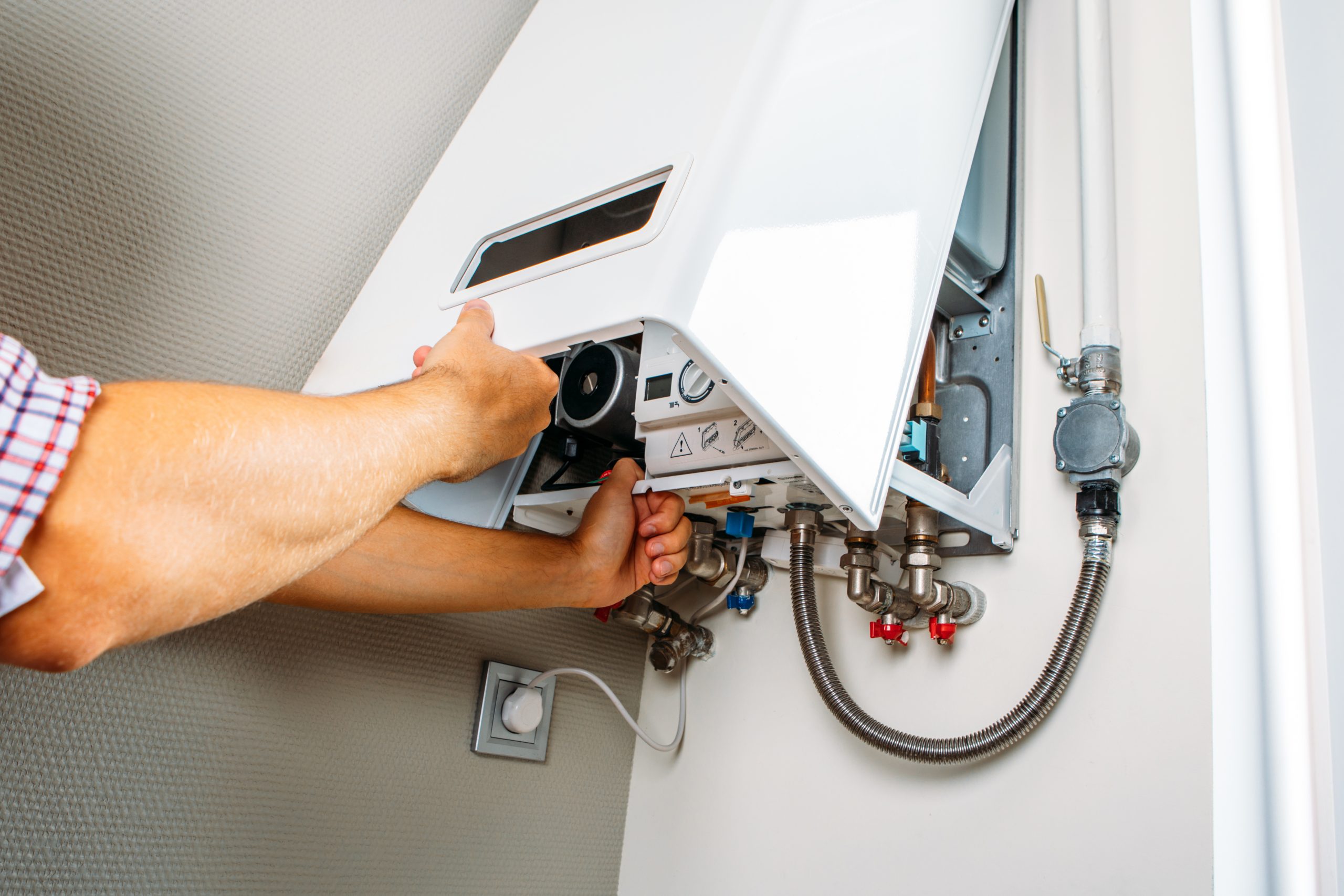When it comes to reliable heating, a hot water boiler is a safe bet and great for many homeowners. Boilers not only provide even and effective heat without ducts, but they also have a long service life because of fewer moving mechanical parts. However, a boiler can still have problems, and it will often signal that something is going wrong with strange or loud noises. Boilers operate with little sound, one of their fundamental attributes, so when you hear odd sounds like rumbling, banging, or humming coming from the tank, you need to have an HVAC technician look at it before your heating system needs serious repairs or shuts down entirely. Below we’ll explain how to diagnose a noisy boiler before it escalates into a more severe problem.
Possible Sources for Boiler Noises
If your boiler makes clunking noises or anxiety-inducing banging sounds when it turns on, you may need boiler repair or maintenance. One of the first things you can do when trying to diagnose the problem is to ask yourself what type of sound it is making:
Clunking or Banging Noise – The most common cautionary clatter your boiler can make is a clunking or banging sound known as kettling. Kettling is an ordinary issue with residential boilers and is caused by hard water. If your water has a high concentration of calcium and magnesium, mineral deposits will form in the heat exchanger. Once the flow of water stops, it will transform into steam, and the pressure in the heat exchanger will rise. If the pressure becomes too high, the boiler will make a strange noise. You’ll want to schedule boiler maintenance immediately because this buildup will decrease your boiler’s energy efficiency and shorten the equipment’s lifespan. Kettling can also be caused by high or low water pressure or a bad thermostat.
Whistling, Hissing, or Vibrating Noise – Whistling or hissing sounds are also related to kettling or air trapped inside the boiler. Trapped air and a spike in water pressure are serious problems, and you will notice significant leaks in the tank and throughout the pipes if not fixed immediately. A lot of things can trigger an uptick in water pressure. If sediment begins to collect in the boiler tank, the less available space within the tank will cause the water to overheat and increase the pressure. If corrosion begins to penetrate the water tank, it will also lead to an imbalance of the heat inside the tank, causing the pressure to go up. Additionally, if you hear vibrating noises, it’s usually the result of loose brackets that need tightening.
Gurgling Noise – Gurgling sounds can be caused by several factors including trapped air in the system, low water pressure, or a frozen condensate pipe. Two places where the boiler releases pressure can cause issues if they don’t work right. If the pressure release valve becomes jammed or clogged or the membrane in the expansion tank leaks, the boiler will not be able to release the excess pressure to maintain the appropriate balance. Gurgling noises are relatively common and aren’t a cause for concern unless the sound is constant or loud.
Why Choose American Weathermakers for Your Boiler Repair or Maintenance?
These issues require the help of a professional. Don’t let the rumbling or gurgling go on all winter long! If you’re searching for a reliable boiler service near me, contact an American Weathermakers technician, and we’ll troubleshoot the problem and identify the best way to repair it. Preventative care is crucial to a well-running boiler, so if you haven’t scheduled regular boiler maintenance, contact the experts at American Weathermakers at (847) 503-9497 to get your boiler serviced today!


